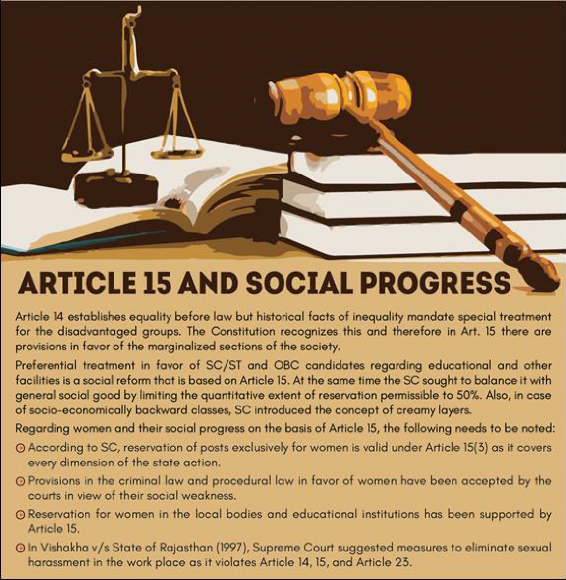Way Forward
A 9-judge bench of Supreme Court in Indira Sawhney case (1992) had struck down a provision that earmarked 10% for the economically backward on the grounds that Constitution only provides for addressing social backwardness. However, any such
step should carefully be preceded by following considerations-
♤ 50% ceiling was put in place to check populism in granting quotas by the political class. There must be an institutional mechanism that recommends classes for reservation.
♤ Based on the affidavits furnished by the candidates, independent, transparent and non- intrusive verification methods have to be devised so that reservation provisions cannot be misused easily.
♤ The logic of providing reservation to economically backward people can further be carefully extended to exclude the creamy layers among SC/ST groups.
♤ The demand for reservation must be seen in light of the quality of private sector jobs and wages available to aspirational India. The only way out of the quota quagmire is to create an enabling environment for the formalization and creation of more and better jobs in the private sector.
♤ For a long-term solution, it is important to address the major issues like caste divisions majorly in rural areas, job creation in private sector, skill creation and education.

